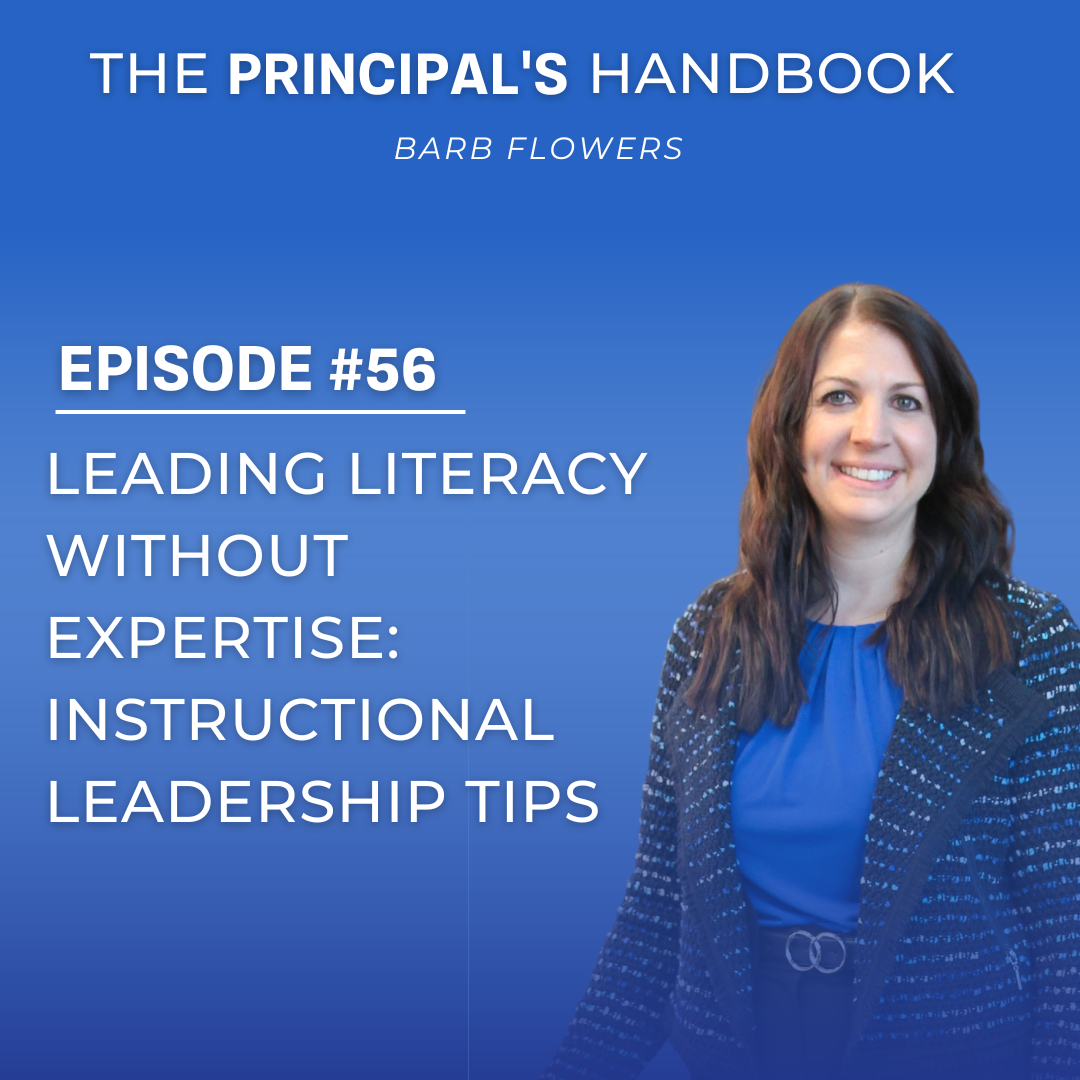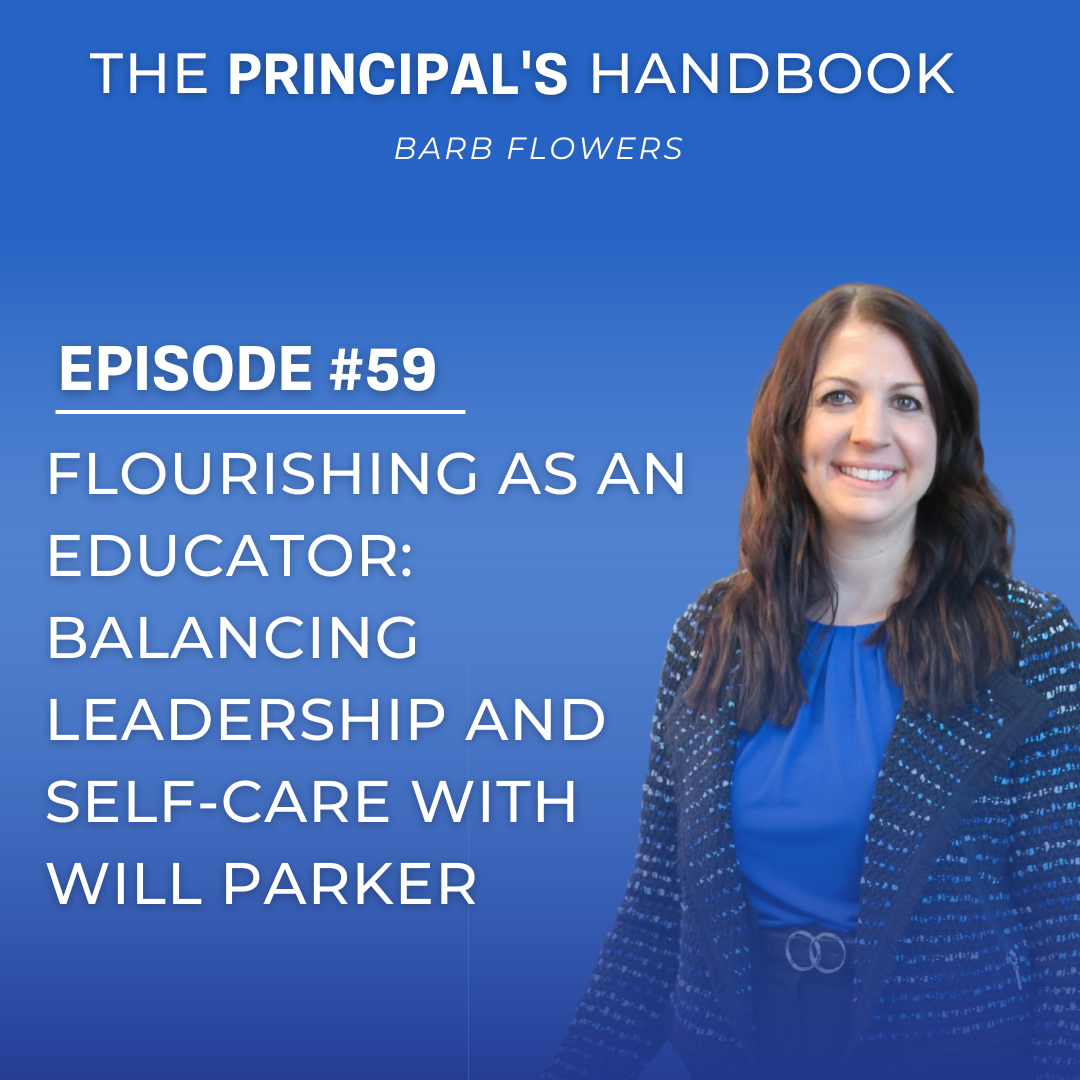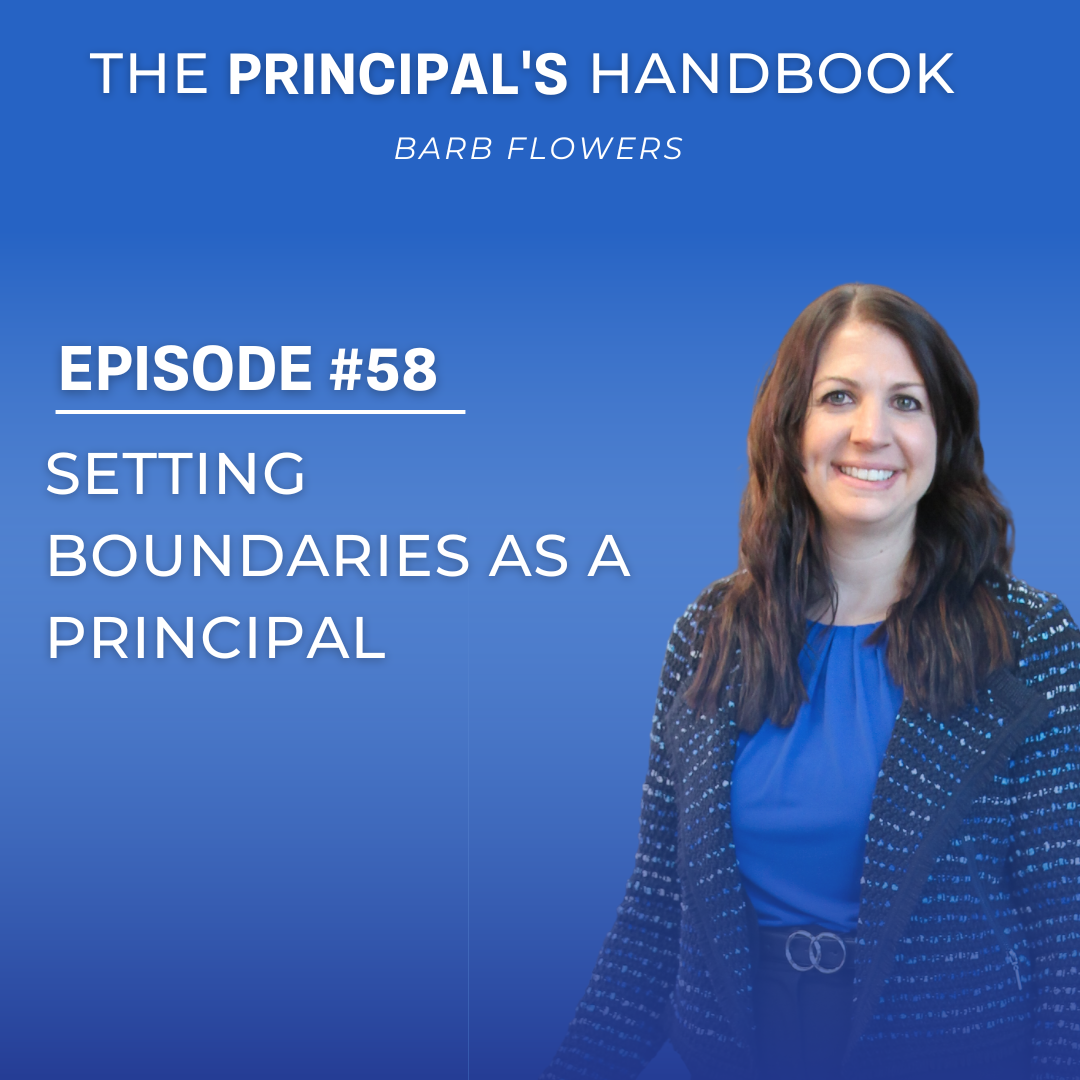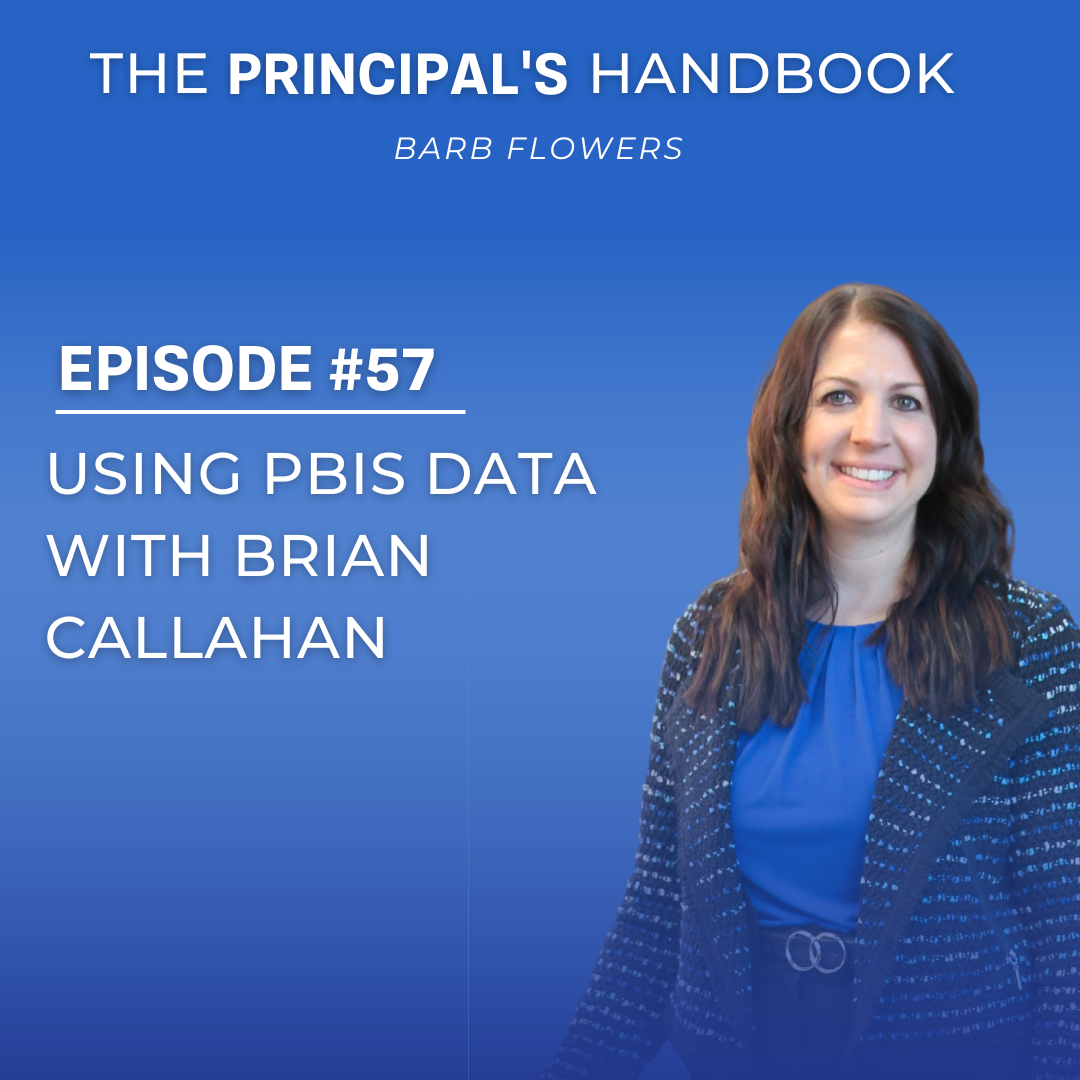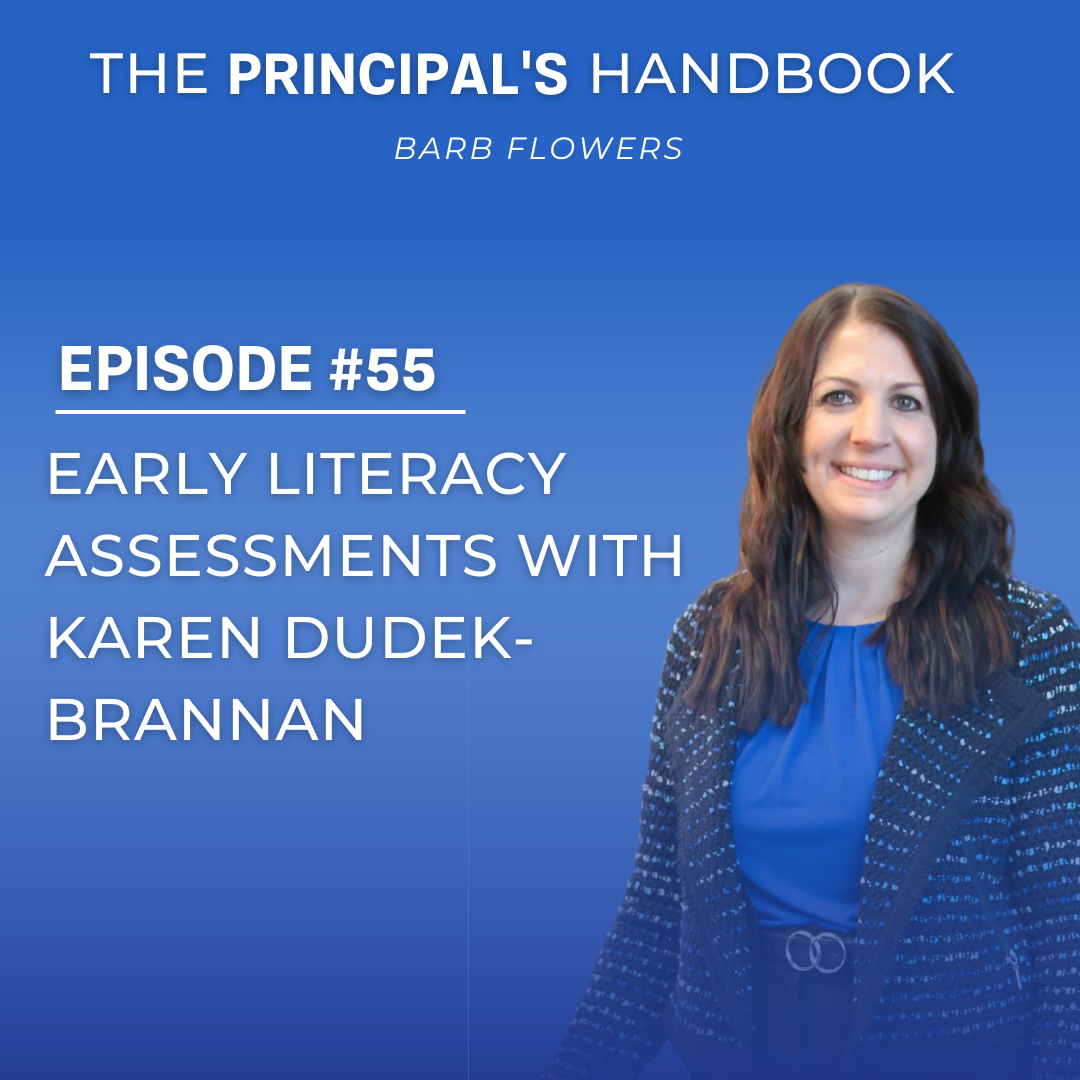n today’s episode, I want to talk about leading literacy without expertise—instructional leadership tips that will help you in your building. That’s all coming up next right here on The Principal’s Handbook. Stay tuned!
Welcome to The Principal’s Handbook, your go-to resource for principals looking to revamp their leadership approach and prioritize self-care. I’m Barb Flowers, a certified life coach with eight years of experience as an elementary principal. Tune in each week as we delve into strategies for boosting mental resilience, managing time effectively, and nurturing overall wellness. From tackling daily challenges to maintaining a healthy work-life balance, I’m Barb Flowers. We’ll navigate the complexities of school leadership together. Join me in fostering your sense of purpose as a principal and reigniting your passion for the job. Welcome to a podcast where your wellbeing is the top priority.
This episode is part of the National Literacy Month with the RAF campaign, a partnership with the Bee Podcast Network and Reading is Fundamental to host numerous productive conversations about developing kids’ reading and literacy skills for life.
Welcome back to the podcast, everyone! Today, we’re going to be talking about leading literacy without having expertise in that particular area. I’m going to give you some instructional leadership tips on how to do that. These tips work for any subject, but I’ve chosen literacy to focus on today. One reason is because of the current campaign with the Bee Podcast Network and Reading is Fundamental, which is all about literacy right now. Also, there are a lot of literacy initiatives happening across the country and even expanding internationally, especially with the science of reading.
I recently recorded a podcast episode about the science of reading, what it is, and how to be a good instructional leader with it, so go back and listen to that episode if you haven’t yet. It’s a really good one to understand more about the science of reading and how it fits into your leadership role.
Leading literacy can be intimidating because of all the brain research and new knowledge that’s been added to reading instruction. Teachers are learning a lot, and we may feel like we need to be experts in it. If you’re a high school principal who has transitioned to an elementary school where literacy is a big focus, or if you’ve come from a high school teaching background and are now in elementary leadership, it can feel like you’re lacking confidence or expertise in this area.
Right now, in Ohio, there’s an initiative requiring all teachers—whether in elementary, arts, or even PE—to do coursework on the science of reading. This includes teachers who’ve never had literacy training because it’s no longer limited to just reading specialists. As a principal, it can be really intimidating if you don’t have this background, but today, I want to give you some tips to help you lead literacy initiatives with confidence.
Tip #1: Rely on Your Reading Experts
Start by relying on the reading experts in your building or district. Depending on the size of your district, your experts might be in your building or located elsewhere. This could be your director of curriculum, a literacy coach, a special education teacher, or a department head—anyone who has deep knowledge of literacy and the initiatives happening in your school.
For example, when I first started as a principal, we didn’t have literacy coaches, but we had amazing Title I teachers. They were seen as the reading experts in our building. They were always researching the latest methods for helping struggling readers and staying up to date on the science of reading. Even though I had a background in teaching reading, I knew I had to rely on others to guide me in this new shift.
Tip #2: Be Authentic
People love when you’re authentic. So when these teachers came to me with information about the science of reading, I didn’t pretend to know everything. Of course, I was familiar with phonemic awareness from my first-grade teaching days, but I realized there was so much more to it, especially when it came to dyslexia. I was open about what I knew and didn’t know, and I encouraged those teachers to teach me what they had learned.
Teachers appreciate honesty. I always said, “I don’t know much about this, but I want to learn. Tell me what you’ve learned.” That openness helped build trust. I was also transparent with my staff. When I was learning new things about the science of reading, I’d check in with the literacy coach to ensure I was on track and communicating the right information. It’s okay to admit that you’re still learning; teachers respect that vulnerability and openness.
Tip #3: Learn As Much As You Can
When the teachers came to me about the science of reading, I asked them to share all the information they had. I didn’t just listen to them; I also researched what they had found. I did book studies alongside the teachers. I learned with them, so by the time we rolled out the initiative to the entire staff, I had a solid understanding of the science of reading.
You may not be an expert right away, but you can become one. Principals can’t be experts in every subject area, but literacy, especially in elementary schools, is one area where you need to have a good understanding. You need to know what you’re looking for when observing teachers, and you should be aware of the interventions that need to happen to support your students.
I took the time to read the research the teachers brought to me. I listened to podcasts, attended state conferences, and took online webinars—all before it became mandatory. I was genuinely curious and wanted to learn more because I knew it was important for the students in my school.
Learning doesn’t happen overnight. This was a process that took a couple of years, but it made a big difference in my ability to support my teachers. I even started practicing some of the interventions myself with students so I could experience firsthand what they were going through.
Additionally, if you can, try teaching a class lesson yourself or working alongside teachers. Getting into the classroom and understanding the student experience is powerful and will help you be a more effective leader when discussing literacy strategies with teachers.
Tip #4: Be an Expert in What Matters Most
As principals, we can’t be experts in every subject area, but it’s important to become knowledgeable about the subject areas that matter most—like literacy. Especially in elementary schools, being an expert in literacy will help you support your teachers, know what to look for during observations, and facilitate meaningful professional development.
When you dive in, you’ll not only be able to support your teachers but also have meaningful conversations with parents about their child’s literacy development, something I would not have been able to do without that background knowledge.
To recap, focus on these key points:
-
Find the experts in your building and district who can help guide you.
-
Be authentic about what you know and don’t know.
-
Learn as much as you can about the literacy initiative in your school.
If you’re feeling overwhelmed by leading literacy initiatives or struggling to balance all the demands of being a principal, I offer one-on-one coaching sessions tailored to your needs. I can help with time management, prioritizing self-care, achieving work-life balance, and growing your leadership skills. If you’re interested, click the link in the show notes to schedule a free consultation.
And if you’re enjoying the show, please leave a review on Apple Podcasts. Reviews help others find the podcast, or you can share this episode with a colleague who might benefit from it. Remember, you have the power to shape your life according to the mindset you choose.
I hope you have a great week, and I’ll see you back here next time.


